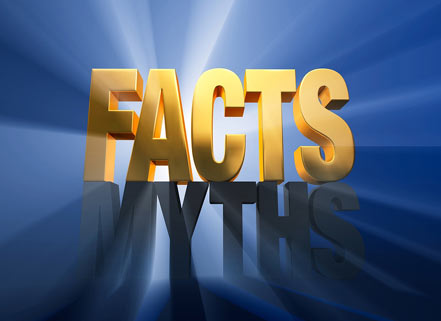
"Donald Trump wants to eliminate overtime pay for people. . . . He nominates someone to head the Labor Department who wants to gut overtime pay."
-- Democratic National Committee Chairman Tom Perez, interview on NBC's "Meet the Press," Feb. 26, 2017
![]()
The day after being elected DNC chairman, Perez appeared on Sunday morning political shows to discuss his strategies to reach voters and lead the Democratic Party. When asked whether the party has lost touch with everyday Americans, Perez said the party has to underscore its economic message.
Perez, a former labor secretary, said that Trump "wants to eliminate overtime pay for people," and that Trump nominated someone "who wants to gut overtime pay" to head the Labor Department. Is this correct?
A DNC spokeswoman acknowledged that Perez misspoke: "Perez meant to say 'eliminate an overtime rule for people.' " So Perez was not referring to overtime pay in general, but a rule enacted under his Labor Department to expand overtime to more salaried workers.
(As FactCheck.org found, Perez's wording was more careful in a subsequent NPR interview Feb. 28: "We implemented an overtime rule at the Department of Labor, and he's seeking to roll that back.")
A 2014 presidential memorandum directed the Labor Department to update overtime regulations, which had not gone through significant changes for decades. The Labor Department doubled to $47,500 the maximum salary a worker can earn while receiving mandatory overtime, extending overtime pay to more than 4 million salaried workers, per Labor Department calculations.
This regulation aimed to reduce the number of employees affected by the "white-collar" exemption for overtime pay under the Fair Labor Standards Act. The exemption applies to employees who make at least $455 per week ($23,600 per year), are salaried, and work in an executive, professional or administration position.
But a federal judge in Texas blocked the rule in late November, just days before it was to take effect. The judge "ruled that the federal law governing overtime does not allow the Labor Department to decide which workers are eligible based on salary levels alone," Reuters reported.
The Trump White House froze all new or pending federal regulations, so that the new administration can review them, as PolitiFact noted. The Obama administration issued a similar memorandum upon taking office in 2009.
Trump's initial nominee for labor secretary, fast-food executive Andrew Puzder, was a vocal critic of the Obama overtime rule. Perez was referring to Puzder when he said Trump nominated "someone to head the Labor Department who wants to gut overtime pay."
Puzder withdrew from consideration amid controversy over his character and business practices, and Trump nominated former U.S. attorney Alexander Acosta instead. It's not clear exactly where Acosta stands on the overtime regulation.
Trump was asked about this rule in August 2016, before the judge's ruling (or even the election). In an interview with Circa News, Trump said he would roll back regulations enacted under the Obama administration and said he wanted a delay or an exemption to the rule for small-business owners:
"And there are 85 million hard-working Americans who would agree with that [rolling back regulations]," Trump said.
"We have to address the issues of over-taxation and over-regulation and the lack of access to credit markets to get our small business owners thriving again. Rolling back the overtime regulation is just one example of the many regulations that need to be addressed to do that. We would love to see a delay or a carve-out of sorts for our small business owners."
But, as Politico noted, Trump neither came out against the rule like many other Republicans, nor embraced the rule like Hillary Clinton had.
The DNC also pointed to an October 2016 memo by the Trump campaign's Small Business Advisory Council, which listed overtime rules as one of the top issues hurting small-business owners. Regarding the overtime rule and broader labor issues, the memo read: "It seems to many Small Business Owners out here in 'flyover land' that the insiders in DC have it in for them. And they probably do. They tell you what you have to pay, set your work rules, mandate benefits and make it impossible to get a fair organizational vote."
"There was overtime before the Obama-era regulation went into effect. It is just this change. It was an expansion. It was ruled illegal, and President Trump would not want to do anything illegal. But to say that he wants to get rid of all overtime is absolutely ludicrous," said Diana Furchtgott-Roth, senior fellow at the Manhattan Institute who served on the Trump transition team for the Labor Department.
A White House spokesman said the administration supports overtime pay under the Fair Labor Standards Act, and is still considering whether to appeal the federal judge's ruling: "The Fair Labor Standards Act provides all hourly and some salaried employees with overtime. The administration plans to faithfully enforce those requirements. However, a Federal judge ruled the Obama administration's salaried overtime regulations exceeded DOL's statutory authority; DOL is currently examining what steps to take next with regards to those enjoined regulations."
Perez used slippery language to suggest that Trump wants to eliminate overtime for all workers. A DNC spokeswoman acknowledged that Perez meant to say "overtime rule" rather than just "overtime." So Perez was speaking about an Obama administration regulation to expand mandatory overtime to about 4 million more workers that has been blocked after a federal judge questioned the legality of the Labor Department's authority to enact such a rule. The rule has not gone into effect.
Trump said in an August 2016 interview that he wants to roll back the regulation for small-business owners, but his administration has not yet decided whether to continue the Obama administration's appeal of the judge's ruling. A White House spokesman said the administration will enforce overtime requirements as legally required.
Perez's language created a misleading impression that Trump would eliminate overtime pay for all workers, which is quite different from the specific overtime rule - thus entering the realm of Three Pinocchios. But Perez's staff acknowledged that he misspoke on air, and we understand that happens on live television.
Comment by clicking here.
An award-winning journalism career spanning nearly three decades, Glenn Kessler has covered foreign policy, economic policy, the White House, Congress, politics, airline safety and Wall Street. He was The Washington Post's chief State Department reporter for nine years, traveling around the world with three different Secretaries of State. Before that, he covered tax and budget policy for The Washington Post and also served as the newspaper's national business editor. Kessler has long specialized in digging beyond the conventional wisdom, such as when he earned a "laurel" from the Columbia Journalism Review


 Contact The Editor
Contact The Editor
 Articles By This Author
Articles By This Author